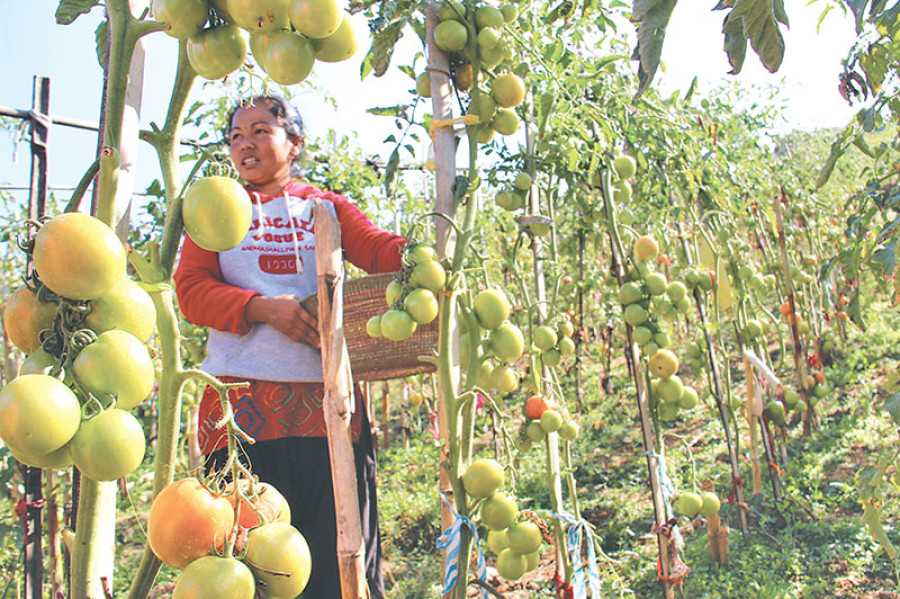Money
Pesticide-free vegetable growers find no buyers
Vegetable farmers in Dhading are finding no takers for their produce grown without the use of pesticide.
Harihar Singh Rathore
Vegetable farmers in Dhading are finding no takers for their produce grown without the use of pesticide.
The growers who took up pesticide-free farming expecting higher returns have been left disappointed after failing to find a market for their harvests. They produce around 15 tonnes of vegetables daily.
No traders visit their farms, and they have nowhere to display their pesticide-free vegetables to attract buyers. As a result, the farmers are forced to sell their produce to local middlemen who pay them the same price they pay for regular vegetables.
“We switched to pesticide-free vegetable farming with great enthusiasm, but middlemen have refused to pay more for our produce,” said Durga Bhujel of Manebhanjyang, Dhading. “They are giving the same treatment to both types of vegetables.”
Bhujel is among the 22 women who leased 20 ropanis of land to start collective farming of vegetables. The women’s group does not use pesticides to treat their vegetables. Instead, they rely on various organic methods to control pests. They produce around 200 kg of various vegetables daily, but they are not getting the prices they deserve.
A local non-governmental organisation provided 16-week training to farmers in Manebhanjyang to start pesticide-free farming saying the vegetables would sell for more than vegetables grown by using pesticides. They were taught to use integrated pest management system by using various biological pesticides to control insects and worms.
The farmers complained that lack of facilities to sell their produce has been one of the major reasons behind their inability to find buyers. There is a large number of buyers for vegetables that are grown without using pesticides. But the farmers don’t have a separate outlet to sell such vegetables, and their produce is mixed up with vegetables produced by using pesticides.
With demand for fresh produce swelling in Kathmandu and other major cities, farmers in Dhading have been encouraged to produce green vegetables round the year. In the past, most farmers used to grow vegetables to earn enough to meet their basic household needs. Now their income has increased several times over.
According to the District Agriculture Office, farmers are growing vegetables on 6,022 hectares, and production has reached 76,479 tonnes annually. Chatredeurali, Jiwanpur, Naubise, Thakre, Kewalpur and Goganpani are popularly known as vegetable pocket areas in the district.
Nearly 10,000 farmers in the district are involved in commercial vegetable production. The pocket areas that are spread over 4,516 hectares produce 57,805 tonnes of vegetables worth Rs2.60 billion annually. The value has been calculated using the average price of Rs45 per kg.
Dhading is number two on the list of the highest pesticide using districts after Kabhre. The farmers have been found using excessively high amounts of toxic pesticides to increase yield and profits after adopting commercial vegetable farming.




 9.7°C Kathmandu
9.7°C Kathmandu-(2).jpg)















